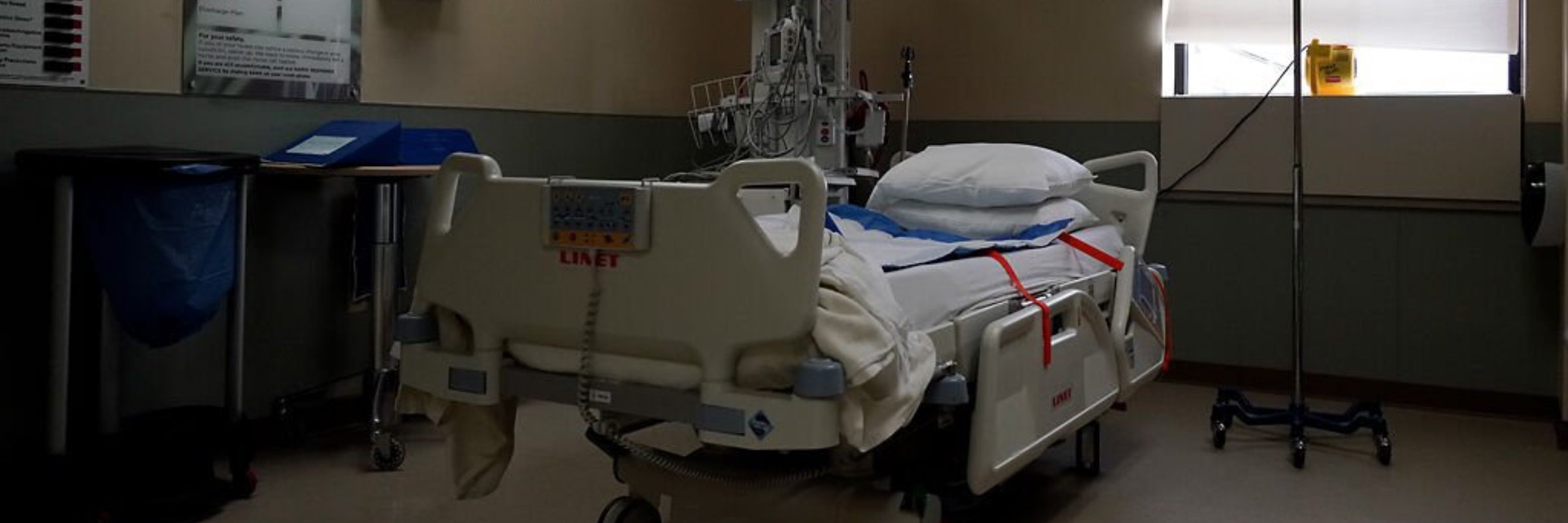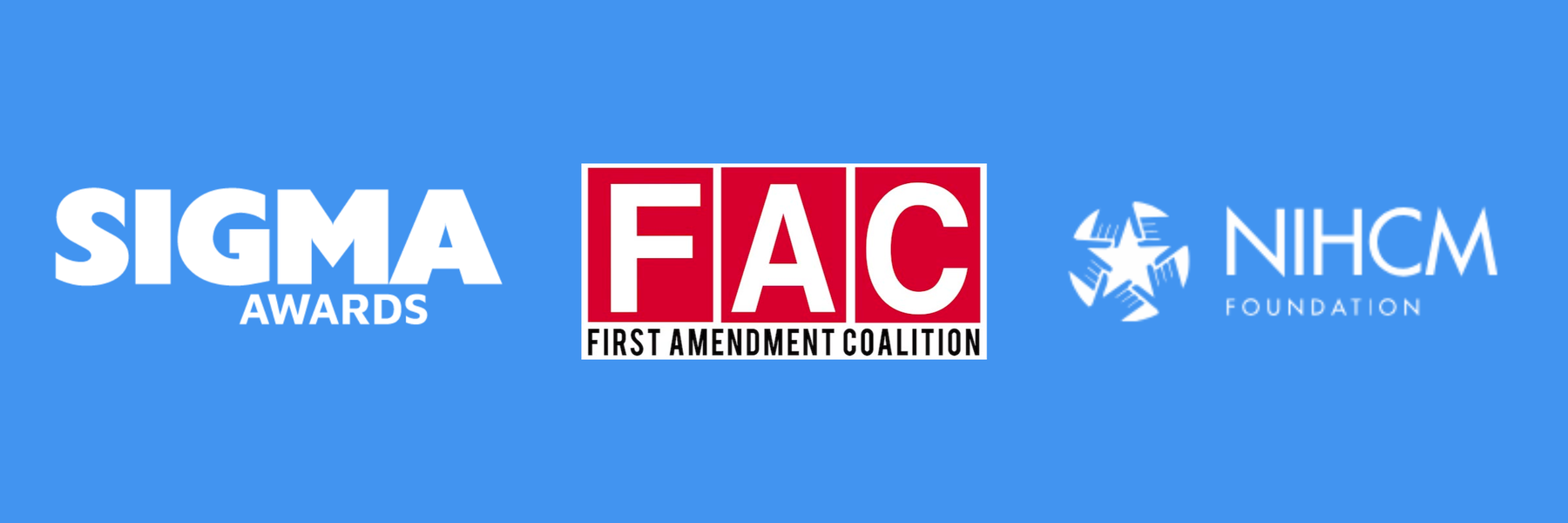SLSCO, a Texas-based construction company, made lofty promises to Missouri’s state health department over the summer that, if hired, it could immediately send hundreds of healthcare workers to aid struggling hospitals.
As evidence, the company pointed to filling a request within 36 hours for 200 intensive care unit nurses and staff in California, and indicated their “bench is deep” with hundreds of staff exclusive to the company.
“We have deployed 1,000’s of medical staff with a 72 hour notice,” wrote Janna Contorno, a project manager with SLS, in July pitching Missouri officials on its services.
Missouri state officials were convinced, and by mid-August awarded SLSCO, known as Sullivan Land Services Co. or SLS, a no-bid emergency contract that was worth upwards of $30 million. At the time, Missouri hospitals were coming off a deadly surge of the delta variant that was still leaving intensive care units full.
Despite its promises, the contractor had mixed success.
Fewer hospitals signed on to receive staff than the Department of Health and Senior Services anticipated. Within the first few weeks, some hospitals faced no-shows, while the company’s hourly rates — up to $215 an hour for some nurses and $550 an hour for doctors — were too high for other hospitals to afford after state funds ran out, according to emails obtained by The Independent and the Documenting COVID-19 project through records requests. (Copies of SLS’ contract and emails between state agencies can be found here.)
“153 staff requested and only 10 deployed,” wrote Alex Tuttle, the governor’s legislative budget director, after receiving a staffing report early in the contract period. “Am I reading that right?”
From mid-August through November, just 206 staff were ultimately sent to 53 hospitals, said Lisa Cox, a spokeswoman for DHSS. The healthcare support had left by the time omicron hit in the winter.
Hospitals saw more success with SLS-run monoclonal antibody clinics, which allowed COVID-positive Missourians to receive free treatment that reduced their risk of severe symptoms. In fact, the health department eventually redirected funds intended for temporary staff to support the clinics.
“Short story, everyone seems thrilled with SLS’ (monoclonal antibody) efforts thus far — less than thrilled with healthcare augmentation staffing efforts thus far,” Paula Nickelson, the administrator of DHSS’ Office of Emergency Coordination, wrote in late August.
Six monoclonal antibody clinics operated by SLS served 3,688 patients between mid-August and late November, according to records obtained from the state health department and the governor’s office. Hospitals that hosted the clinics touted SLS’ ability to take these treatments off their hands and serve patients.
Yet the antibody clinics came at a high price tag: Nearly $21 million, suggesting the state spent more than $5,600 per patient.
That’s an “exorbitant cost for administering the treatment,” said Sam Lai, pharmaceutics professor at the University of North Carolina at Chapel Hill and the founder and chief scientific officer of Inhalon Biopharma, which is developing an inhalable monoclonal antibody treatment for COVID-19.
SLS declined an interview request and didn’t respond to written questions. In a statement, spokeswoman Liz Rogers said the company “is proud of the work we did for the State of Missouri” and referred questions to DHSS.
In a statement, Cox defended the steep costs for monoclonal antibody treatments as necessary.
“Being prepared to efficiently provide nearly 4,000 Missourians with this effective medical care in a time of such uncertainty is not something on which we put a price tag,” Cox said.
The company was paid nearly $25 million through the state for its hospital staffing and treatment centers, and overall has been paid more than $32.5 million, according to state payroll records — but the final total will be higher as the company is still providing staffing in state psychiatric hospitals.
By the time Missouri was in the throes of another surge of coronavirus cases fueled by the omicron variant, a state of emergency had expired and the contract allowing hospitals to rely on SLS for staffing assistance had ended.
No-shows, slow uptake on hospital staff
Mary Frerer, chief human resource officer for Freeman Health System in southwest Missouri, had thought two intensive care unit nurses would be reporting to human resources first thing at 7:30 a.m Monday as requested.
“To our surprise – they no-showed,” Frerer wrote in an Aug. 30 email to Nickelson.
Contorno, the SLS project manager, said the nurses had dropped from the assignment the night prior. But when a health system recruiter reached out to one of the nurses directly, the nurse said she had never been informed of the assignment in the first place.
Frerer told Nickelson that the situation was “extremely disappointing,” as the hospital was in “critical need of nurses.”
“I can only hope this is a one-time occurrence and the other staff they are sending our way actually show up,” she wrote.
A spokeswoman for Freeman Health System declined to comment. But it appears it wasn’t the only one experiencing cancellations.
The same day Freeman Health was dealing with no-shows, Nickelson fielded at least two other complaints from hospitals about staff not showing up, sometimes without prior notice, she wrote to top DHSS officials.
After staff agreed to a contract, SLS was experiencing cancellations where staff would develop “family emergencies” and then either wouldn’t get on the plane to Missouri or would work one day and not return, Nickelson wrote.
SLS was also “highly frustrated,” Nickelson relayed. The company had an internal policy that they wouldn’t offer staff another position for six months unless they could provide proof of a “family emergency.”
It’s unclear how often staff didn’t show up as expected. SLS did not clarify how many hospitals faced no-shows, and despite emails showing Nickelson heard from hospitals directly about problems, Cox said DHSS didn’t receive information on the issue.
The Missouri Hospital Association surveyed its members on issues they encountered, but Mary Becker, the association’s senior vice president, declined to discuss the feedback the organization received.
While SLS had touted its past staffing work to the state, its track record was far from perfect.
In addition to disaster response, the company had also constructed portions of the U.S.-Mexico border wall during the Trump administration, including a California section that fell down under strong winds.
Amid the pandemic, the company pivoted to healthcare staffing and constructing field hospitals, some of which ran up tens of millions in costs but ultimately served few patients — and in one instance none at all.
Constructing a potential alternate care site in Springfield, the epicenter of the delta variant’s spread in Missouri, was initially why the company had been sought out in the first place.
Nickelson felt the need to bring SLS into the state was dire, writing in an Aug. 7 email that if a contract wasn’t finalized within the next week, “we will have missed the window in which we can be of any real assistance to our hospitals.”
“As a citizen and taxpayer, it’s unconscionable to me that funding is (sitting) in a special fund idly while people are literally dying in our hospitals or in transit to an ICU bed across the region or out-of-state due to critical shortages,” she wrote to state health leaders.
But out of the $15 million the state initially allocated to pay for temporary staff in hospitals, only $4.5 million was ultimately spent, with remaining funds shifted toward antibody treatment centers.
In total, 74 hospitals ended up opting in to the program, and 206 staff were sent to 53 hospitals, Cox said.
Credentialing requirements for each hospital “often slowed the onboarding process or prevented individuals from qualifying for inpatient care duties,” Cox said.
For some, the hourly rates were higher than they could afford, leading to hospitals saying they wouldn’t pay for staff on their own dime after the state’s funding ran out, Nickelson wrote in late August.
According to a copy of the state’s contract with SLS, hourly rates initially ranged from $65 for certified nursing assistants to $550 for critical care physicians, with overtime paid at one-and-half times the hourly rates.
After being outbid by other states, like California, Florida, Louisiana and Iowa, Missouri officials agreed to raising some positions’ rates in late August. The largest increases were for nursing positions, with behavioral health registered nurses’ hourly rate increasing 39% to $195 an hour and licensed practical nurses’ costs increasing by 33% to $120 an hour. Other nursing positions topped $215 an hour after smaller boosts, according to a copy of the contract amendment.
Hospitals across the country were experiencing staffing shortages in the summer when SLS was hired, Cox said, contributing to a “nationwide competition” for contract staff that resulted in increased hourly rates.
The cost wasn’t lost on Department of Mental Health officials.
In a Sept. 14 email, Valerie Huhn, then-deputy director of DMH, raised the high cost of SLS’ services with the governor’s office and cautioned bringing in temporary staff “will further impact the morale at these facilities.”
To bring in two licensed practical nurses, four registered nurses and 14 home care aides for a month at the Northwest Missouri Psych Hospital in St. Joseph, it would cost over $1.8 million when factoring in mileage and housing costs.
In comparison, to fund $3 per-hour pay increases for the facility’s staff would cost $630,000.
Hiring traveling nurses is a necessary short-term solution, but can often lead to conflict, said Tener Veenema, a professor of nursing who researches health systems and emergency preparedness at Johns Hopkins’ Bloomberg School of Public Health
“You’d have two nurses working side by side, one making thousands of dollars a week, and one who stayed true to their institution and their community, making just a pittance of that,” Veenema said. “This really created a sense of awareness of how disempowered nurses had become.”
In an interview, Huhn, who now serves as DMH’s director, said her concerns on the impact of morale have lessened now that state lawmakers have passed funding for raises for state employees.
At times, between 300 to 400 staff have been out sick after testing positive for COVID. SLS was “a key part of us keeping care going,” Huhn said.
Nearly all DMH facilities have utilized SLS for temporary staff. There were 205 staff contracted across facilities, Huhn said earlier this month. DMH was approved to extend the use of the contract with SLS through the end of March, and has already paid over $5.6 million for staff, Huhn said.
“Anytime that we can bring in some staff to alleviate any of that overtime, it’s important,” Huhn said. “That also helps staff morale.”
Monoclonal antibody treatment sites go under-utilized
One straightforward solution for overwhelmed hospitals is to decrease the number of COVID-19 patients.
And in a state like Missouri where the vaccination rate lags behind the national U.S. average despite major investment in incentives, monoclonal antibody treatments can play an important role in keeping people out of the hospital after they become infected.
Monoclonal antibody treatments consist of lab-made immune system proteins, originating from the blood of COVID-19 patients who have recovered from the disease. Scientists who develop these treatments are basically “taking the best of the best” antibodies, said Lai, the expert on these drugs.
These lab-made antibodies are injected into a patient’s bloodstream, essentially “boosting the immune system” and capitalizing on natural responses to the coronavirus, Lai said.
Along with temporary healthcare staff, DHSS hired SLS to operate monoclonal antibody clinics.
The company was contracted to set up, staff and manage six sites across Missouri – including patient scheduling and data collection. DHSS worked with hospital systems and urgent care networks to identify the six sites, and treatments began at the end of August. The sites were located in Kansas City, St. Louis, Sikeston, Poplar Bluff, Festus and Sedalia.
While monoclonal antibodies are highly effective, they’re far less efficient than vaccination.
Receiving the infusion, plus an observation period to observe any side effects of the treatment, can take hours.
As a result, the largest SLS-run monoclonal antibody site at University Health in Kansas City, with eight treatment stations to other sites’ five, could only treat up to 32 patients in one day.
But the site never reached its maximum capacity during two months of operation between late August and October. On Sept. 18, the University Health site saw 31 patients, according to state data obtained through records requests. On other days, patient numbers were typically between 15 and 25.
Other sites saw even fewer patients. The Affinia site in St. Louis, which had five stations and could treat up to 20 patients a day, typically received less than 10.
Due to low patient numbers, DHSS paid a high amount for each Missourian who received treatment. The total price for six SLS-run sites was $20.9 million for two months.
The six clinics served 3,688 patients in total, at a cost of over $5,600 per patient. The price tag didn’t include the cost of monoclonal antibodies themselves, as the costly drugs — which average about $2,100 per dose — were provided from the federal government through its allocation system.
Ideally, Lai said, “the costs of infusion should only be a (small) fraction of the overall costs of the drug.”
Timing likely played a role in the low patient numbers, since the monoclonal antibody sites were rolled out as Missouri’s delta surge was waning — and well before omicron hit in the winter.
But the sites also suffered from communication challenges: Many Missourians were unfamiliar with the treatments and with the company running the sites.
This issue was particularly pronounced at the Affinia Healthcare site.
Affinia specifically chose to host the monoclonal antibody site at a clinic location in north St. Louis, among a community that had been hard-hit by the pandemic, said Kendra Holmes, Affinia’s senior vice president and chief operating officer.
SLS brought flyers and pamphlets explaining how the monoclonal antibody treatments worked, Holmes said. But these materials were confusing or unhelpful for some of the patients served by Affinia clinics, so staffers “had to redo a lot of the flyers.” Changes included clear branding with the Affinia name and logo that people in the community would recognize and trust.
“When you’re working in underserved communities,” Holmes said, “you need to have some foresight to know that there’s a lot of mistrust. To just put a vendor in who no one in that community knows, you’re not going to see the numbers that you would if there’s an organization that has a name that’s trusted in the community.”
Despite the early problems, Affinia found monoclonal antibodies to be an invaluable option for patients. None of the patients who have received monoclonal antibodies at their clinic — during the SLS contract period and later — went on to require hospital care, Holmes said.
Other healthcare providers that hosted the sites similarly praised SLS for quickly setting up the infusion clinics.
Having an outside company run the sites, including staffing, helped University Healthcare in Kansas City put its own staff back on their usual work duties, said Dr. Matt Gratton, associate chief medical officer at the hospital.
Like University Healthcare, Bothwell Regional Medical Center in Sedalia was “struggling with staffing” for monoclonal antibody treatments prior to the SLS contract, said Maggie Schaffer, case management nurse at Bothwell and the hospital’s lead contact with SLS.
When Bothwell learned about the option for clinic support, they jumped on it. Just six days after an initial call with DHSS officials about the clinic program, SLS had fully set up a clinic site at Bothwell and was ready to start treating patients, Schaffer recalled. Bothwell’s clinic was hosted on the third floor of the hospital, which wasn’t in use for any other patients at the time due to staffing shortages.
“I have several members of my own staff that were recipients of the monoclonal antibodies,” Schaffer said. “And typically what we hear is within about 24 to 36 hours, that they’re feeling like a whole new person.”
Long-term investments
Patients are still receiving monoclonal antibody infusions at Affinia Healthcare, though without SLS staffing. Current infusion numbers have dramatically increased from that SLS period, Holmes said. She estimated that Affinia now treats 36 to 40 patients a week, up from 10 to 12 a week in September and October.
“The issue now is that we don’t have enough of the monoclonal antibodies,” Holmes said, referring to sotrovimab, the one monoclonal antibody drug (out of three widely used in the U.S.) that is still demonstrably effective against omicron.
The situation is similar at University Healthcare, which provides sotrovimab infusions to about eight patients a day, according to Gratton. If the hospital had access to more antibody drugs, they could treat more patients.
In reality, the state can’t do much to provide hospitals with more monoclonal antibody drugs or antiviral pills, both of which are distributed by the federal government, both Gratton and Holmes acknowledge.
But the state may be able to provide more staffing and address structural issues within the healthcare system with regulations on things like work hours or the number of patients that a single nurse can be treating at once.
Gratton said it was disappointing to see staff leave, but at a facility like University Health that provides healthcare regardless of patients’ insurance status, “we don’t have the money to raise everybody’s salary the amount that it would take to keep people from leaving.”
In comparison, other states are directing budget surpluses to help with healthcare staffing, like providing direct payments to healthcare workers. When asked whether Missouri is considering similar initiatives, DHSS said it is but it declined to share further details.
On Friday, DHSS extended an application deadline for nursing students and other healthcare professionals to apply to receive grants to help cover student loan repayments.
The state plans to request proposals to hire companies to provide temporary medical staff statewide to replace the emergency contract with SLS, said Chris Moreland, a spokesman for the Office of Administration.
Long-term solutions are needed to address the root of the staffing crisis problem, said Veenema, the Johns Hopkins health systems expert.
“If we don’t fix the toxic work environment, this issue of mandatory overtime, inadequate staffing levels, lack of time to access mental health resources,” Veenema said, “then you’re simply shooting more new nurses out of the cannon, but into the lake where they’re going to drown.”




